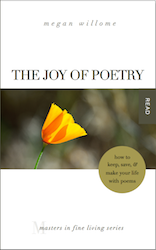The manicurist scraped the skin away from my nail bed trying to whip my cuticles back into shape after years — a lifetime? — of neglect. Then, with a small pair of scissors made especially for such a job, she began clipping the skin that had accumulated.
“That’s doesn’t hurt a bit, ” I said, surprised.
“It shouldn’t, ” she explained. “The skin is dead.” But before she finished, I felt a nick. Then, the blood began to pool around the edge of the soft white moon of my nail.
“I got ya, ” she said, holding a towel against my finger to try to get the bleeding to stop.
“I felt it.”
“You’re my first one, ” she said, dabbing at the blood. “I’ve never made anyone bleed before.”
Earlier, I had told her that she was my first—my first manicurist. I had had pedicures before, but never a manicure. I was going to a writing conference the following week and didn’t want my nail biting habit to be so obvious.
“Are you done working for the day?” the manicurist asked, still putting pressure on the reddened cuticle. My work as a writer serves as an endless source of conversation each time I am in the salon, usually for a haircut and style.
“Actually, I’m going to Lafayette tonight to hear a poetry reading.”
“Ohhh, ” she said, eyebrows raised a bit.
“It might sound boring, but I think it will be fun.”
“Oh yeah, I’m sure it will be, ” she said, “if you like that sort of thing. I just don’t like poetry. I don’t understand it.”
“Some of it can be hard to understand, ” I sympathised. “It’s better if you just try to enjoy without analyzing it. Just listen to the words and the rhythm.”
“I was in honors English in high school, ” she responded. “We spent three months talking about the meaning of To Kill a Mockingjay. I got tired of it.”
I thought about correcting her on the title of Harper Lee’s classic, but the mashup said more about her frustrations. Even the recent Hunger Games series, with all its action and dystopian suspense, would turn into a snoozefest if she had to analyze it for three months. When she turned away for a second to check her phone, I knew our literary conversation had ended.
My first manicure was complete about the time the bleeding stopped. I left the salon with neatly trimmed and painted fingernails but also with a question: why don’t more people like poetry?
That evening at the Tippecanoe County Public Library, Shari Wagner, our new Indiana poet laureate, read several poems from her two books along with a few from her looseleaf collection not yet published. Her poems were about childhood games and coming of age, about farm wives and jewelry. Some of her poems were inspired by mythology, some by people she’d met or read about. Most of her poems were connected to the places she’d lived or traveled to or read about. Many about Indiana, in fact, which made her a very obvious choice as our poet laureate.
“It’s important to link places to their stories, ” Wagner said. “We protect places better when we know their stories.”
A Q&A time followed the presentation, and when everyone else had had a turn to ask their questions, I raised my hand. First I talked about the manicurist, and how convinced she was that an evening of poetry would be decidedly un-fun. Then I asked, “How do we make poetry more interesting to more people? How do we take it from the ivory tower and make it available?”
It’s a question I had wrestled with longer than the time it took my nails to dry. Looking around at the small but respectable crowd that had gathered at the library, though, I suspected others had wrestled with the question too and were starting to get it right. This was a college town, but most of the folks in the audience, many of whom I know or are known by friends of mine, seemed like regular people who appreciate a good turn of verse.
Our poet laureate had a few ideas herself; bringing poetry to the people is part of her mandate in the poet laureate position. She suggested starting with poetry that is more accessible, reading poets from this century, reading poetry in groups, and participating in events like National Poetry Month.
But then she turned the question back to me. “What ideas do you have?” she asked. And though I was flummoxed, I understood her point. Waiting for the poet laureate to make poetry relevant was like waiting for a doctor to prescribe medicine to people who don’t think they’re sick.
“Maybe I’ll take one of your poems to my manicurist, ” I told Wagner later that evening as she signed a copy of her book for me.
After just a few days, I’ve peeled off all my beige gel polish and bitten my nails down to the quick again. I haven’t decided if I’m really a “manicure person” or not, but the next time I go to the salon to get my hair trimmed, I’ll be taking along a poem or two for the stylists. It’s part of my mandate, too.
The Blessing
For the space of four hours,
From Indianapolis to my grandparents’
Farm near Shipshewana,
My father and I plowed
Past dark fields, singing:
“Vegetables grow
In my garden, God sends the rain.
Vegetables grow in my garden,
God sends the sun.”
With each verse
We substituted something new:
Corn-on-the-cob, strawberries,
Zucchini, coconuts. The trick,
Never stop for breath.
I did not know we carried
My stillborn brother
In that car
And that his blessing
Would be a song that twisted
Around and around, clinging
To this world like a vine.
—Shari Wagner, author of Evening Chore
Photo by Tabea Scotchdopodo, Creative Commons license via Flickr. Post by Charity Singleton Craig, co-author of On Being a Writer: 12 Simple Habits for a Writing Life that Lasts.
_________________

—David Lee Garrison, author of Playing Bach in the D. C. Metro
- Grammar for a Full Life Book Club: On Becoming Less Possessive - June 16, 2021
- Grammar for a Full Life Book Club: Chilling Out on the Grammar Rules - June 9, 2021
- Grammar for a Full Life Book Club: A Passive Voice - June 2, 2021

Maureen says
Sometimes it’s the most plainspoken language that carries the most weight. I mentioned on FB the reading I attended last night by my friend John Guzlowski, whose poetry about his parents’ experiences during the Holocaust and after is as plain as can be but is profoundly felt and deeply affecting.
You’ve selected a wonderful poem by Wagner, the kind that takes readers by surprise, deftly setting us up for an emotional shift that speaks beautifully to loss.
I hope you’ll change your salon person’s mind about poetry, Charity. I think she might be surprised if she were to read your book and understand how well it conveys how poetry can enrich, enlarge, even save, a life.
Charity Singleton Craig says
Thanks, Maureen. I think you are right about the plain spoken language. I also think poetry is much more enjoyable to me when I can hear it and see it. And to hear it read as the poet intended. Hearing Shari Wagner read her poems really made them come alive for me, even more than just reading them myself. The same is true for Christian Wiman, who I heard at a recent conference. He has a depth and rhythm to his voice that at one point left me feeling that he was singing or chanting. Really, he was just playing with the rhyme and rhythm of what he had written. It was enchanting.
Megan Willome says
That was definitely a poem to read more than once. Read it twice silently, then aloud. Wow.
I love your conversation with your manicurist! There comes a time when only a poem will do, and she may not have reached that point. Recently we attended a friend’s 70th birthday party, and two poems were read, one of them his. They were both on the sentimental side but both touched the audience.
Charity Singleton Craig says
Megan – Thanks for your comment. You know, I have found that people who might otherwise say they don’t like poetry actually DO like sentimental poetry. I think it’s more about the plain language that Maureen mentioned above.
Also, today as I was driving by the salon, I thought about the manicurist and about the things she enjoys — some of which I do not, I’m sure — and I realized that we can expect others to take an interest in our passions only when we are willing to take an interest in theirs. Maybe that’s also part of this conversation. I need to cultivate my own openness to things I don’t like or understand.